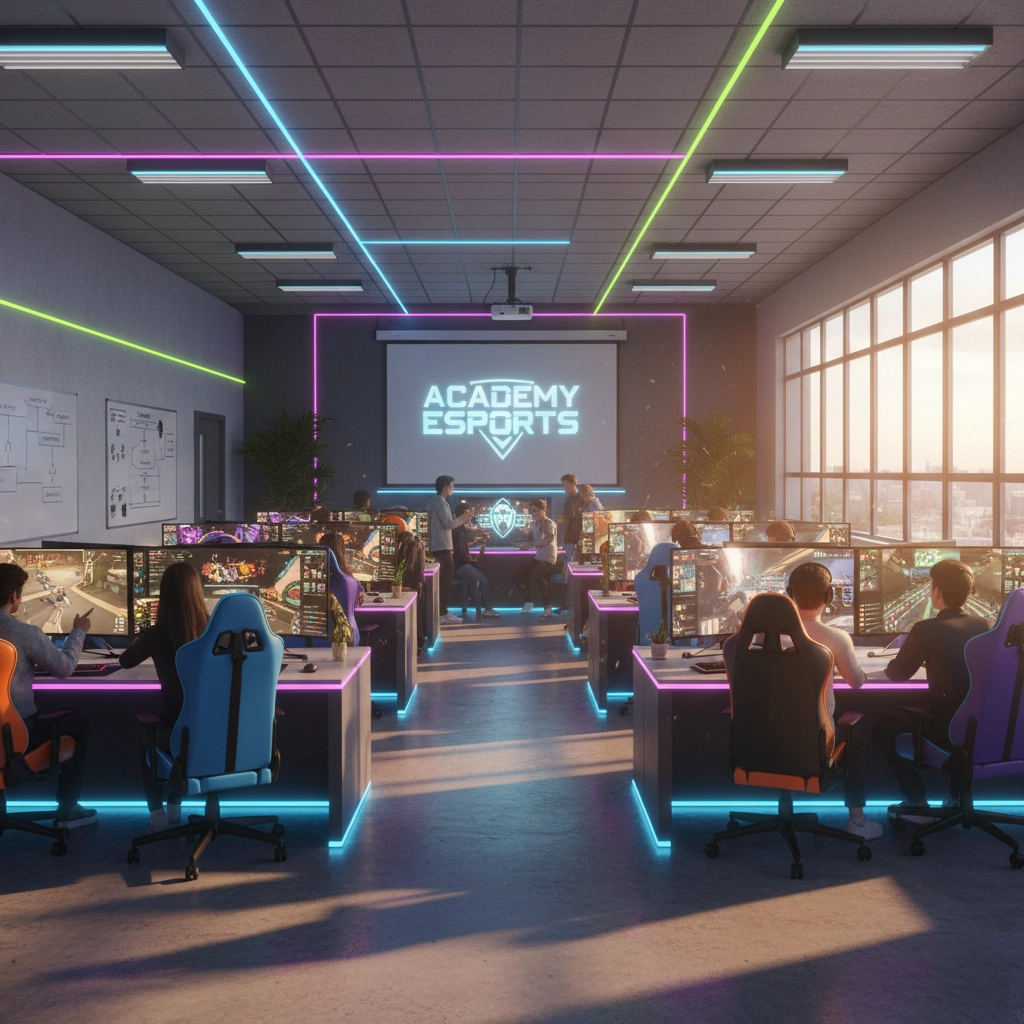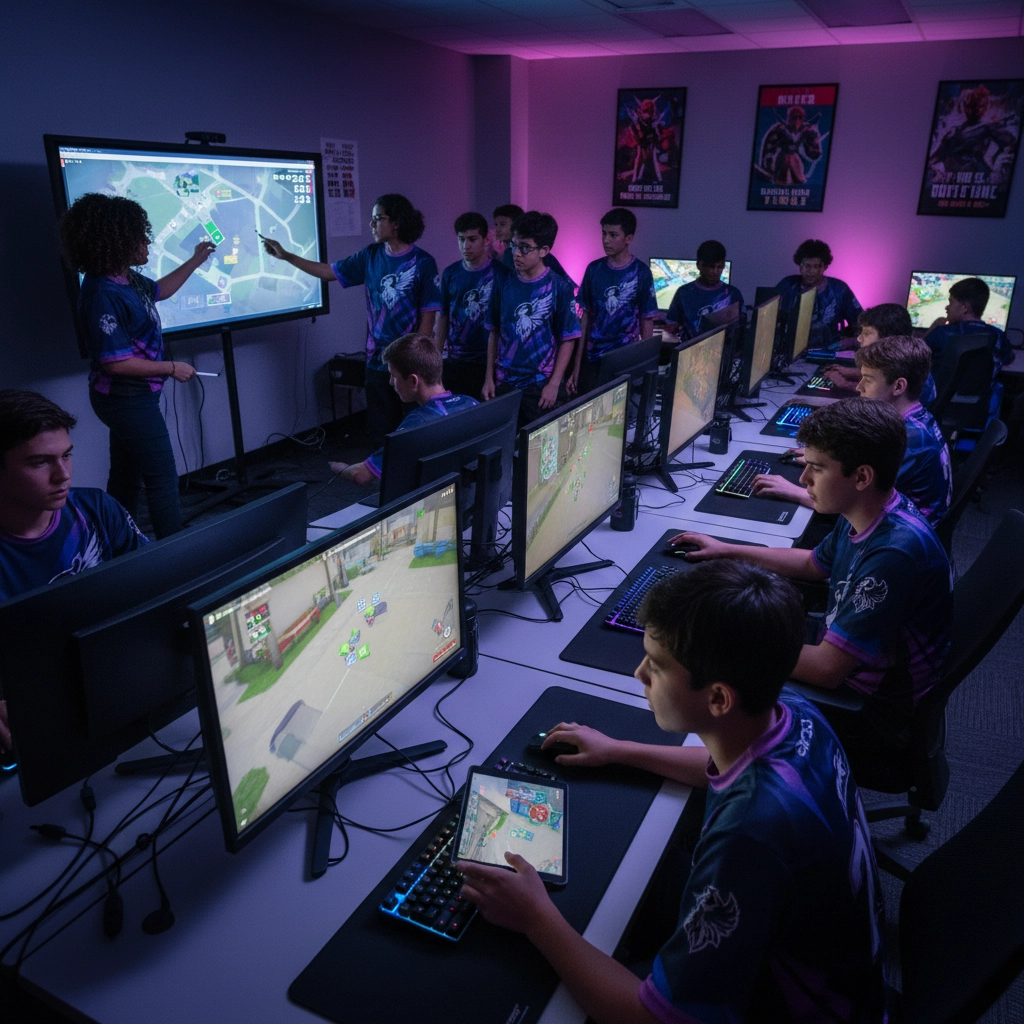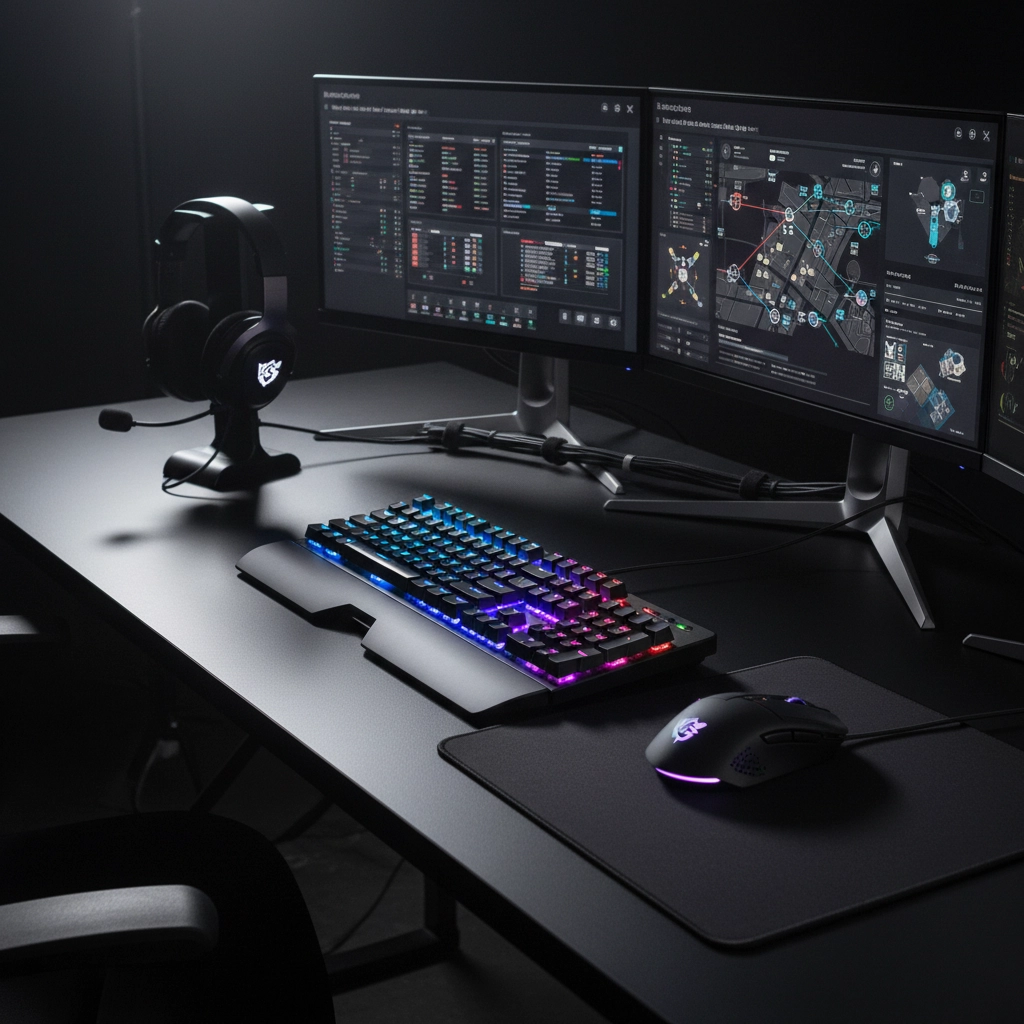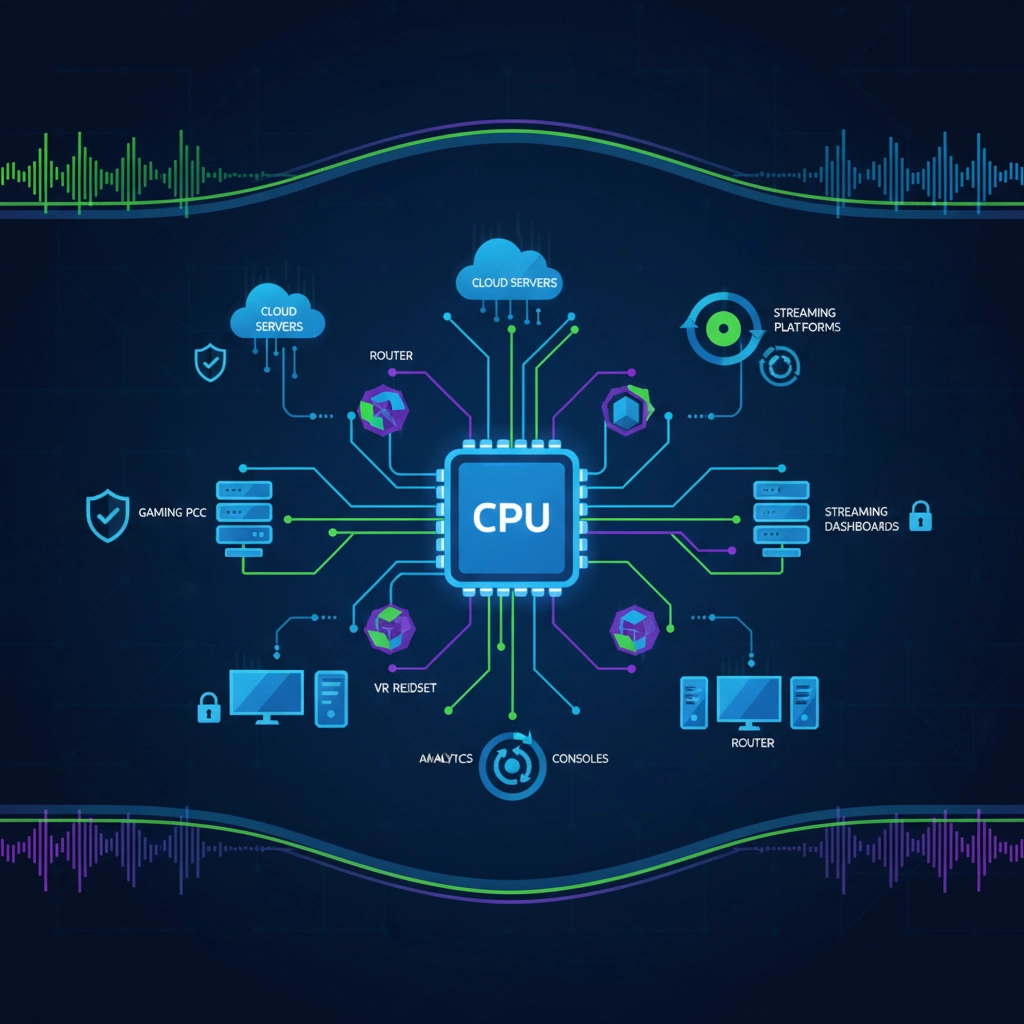Running an esports pod in a high school environment requires structured planning and clear implementation strategies. Teachers entering this field need practical guidance to establish successful programs that benefit students while maintaining educational standards.
Establishing Program Foundation
The initial setup phase determines long-term success. Teachers must define program objectives, establish participant requirements, and create operational frameworks. Clear documentation of goals ensures all stakeholders understand expectations and outcomes.
Registration processes should include academic standing requirements, behavioral expectations, and parental consent forms. Students must maintain specific grade point averages and attendance records to participate. These standards reinforce the connection between academic performance and extracurricular privileges.
Meeting schedules require consistency. Weekly sessions of 90-120 minutes provide sufficient time for skill development and team coordination. Shorter sessions limit meaningful progress, while extended periods may conflict with other academic responsibilities.

Team Structure and Role Definition
Successful esports pods require multiple participant roles beyond active players. Teams need strategic coordinators, technical support personnel, and content creators. This structure provides opportunities for students with varying skill levels and interests.
Player positions depend on selected games. Traditional team-based games require specific role assignments such as support players, offensive specialists, and defensive coordinators. Individual competition formats need different organizational approaches focused on personal skill development and tournament preparation.
Coaching responsibilities extend beyond game strategy. Teachers must monitor team dynamics, mediate conflicts, and ensure inclusive participation. Regular one-on-one meetings with participants help identify issues early and maintain program standards.
Substitute players and rotation systems prevent burnout and provide development opportunities for newer participants. Clear advancement criteria motivate improvement while maintaining competitive standards.
Practice Session Management
Structured practice sessions maximize learning outcomes. Each session should include warm-up activities, skill-focused training, strategic review, and competitive play segments. This format mirrors traditional athletic training methods adapted for digital competition.
Video analysis becomes essential for improvement identification. Recording gameplay sessions allows detailed review of decisions, timing, and coordination. Students learn to evaluate performance objectively and implement corrections systematically.
Individual skill development requires dedicated time allocation. Players need focused practice on mechanics, reaction timing, and game-specific techniques. Group activities should complement rather than replace individual improvement work.
Strategic discussions develop critical thinking skills. Teams analyze opponent tendencies, discuss tactical options, and create game plans. These conversations translate competitive gaming into educational experiences that develop analytical abilities.

Technical Infrastructure Requirements
Equipment specifications vary significantly between games and competition levels. Teachers must research hardware requirements, software licensing, and network capabilities before program launch. Budget constraints often limit options and require creative solutions.
Computer specifications should exceed minimum game requirements to ensure consistent performance. Graphics processing capabilities, memory allocation, and storage space directly impact gameplay quality and student experience.
Network infrastructure needs evaluation for bandwidth capacity and stability. Multiple simultaneous connections require robust internet service and proper router configuration. Network lag creates frustration and limits competitive viability.
Software management includes game updates, security patches, and licensing compliance. Regular maintenance schedules prevent technical issues during critical practice sessions or competitions. Student accounts require monitoring for appropriate use and security.
Student Engagement Strategies
Motivation techniques must address diverse student interests and skill levels. Recognition systems should celebrate improvement rather than absolute performance levels. This approach encourages continued participation among developing players.
Tournament participation provides goal-oriented experiences that develop competitive skills and teamwork abilities. Local competitions offer accessible entry points, while regional events provide advancement opportunities for dedicated participants.
Peer teaching opportunities develop leadership skills among experienced players. Advanced students can mentor newcomers, creating positive community dynamics and reducing teacher workload. These relationships often continue beyond program participation.
Cross-curricular connections demonstrate educational value to administrators and parents. Mathematics applications include statistics analysis, probability calculations, and resource management. Communication skills develop through team coordination and strategic planning discussions.

Administrative Considerations
Documentation requirements include attendance records, academic progress monitoring, and incident reports. Comprehensive record-keeping supports program evaluation and addresses administrative inquiries. Regular reporting demonstrates program value and participant outcomes.
Budget management encompasses equipment costs, software licenses, and competition fees. Grant opportunities and sponsorship partnerships can supplement school funding. Corporate partnerships through programs like Fanz's sponsorship initiatives provide additional resources and professional connections.
Parental communication maintains support for program participation. Regular updates about activities, achievements, and upcoming events keep families informed and engaged. Transparency about program standards and expectations prevents misunderstandings.
Safety protocols address both physical and digital environments. Ergonomic considerations prevent repetitive stress injuries during extended gaming sessions. Online safety education protects students from inappropriate content and cyberbullying situations.
Assessment and Evaluation Methods
Performance measurement requires multiple evaluation criteria beyond win-loss records. Individual skill progression, teamwork development, and leadership demonstration provide comprehensive assessment data. Standardized rubrics ensure consistent evaluation across all participants.
Portfolio development documents student growth through gameplay recordings, strategic analysis papers, and reflection essays. These artifacts demonstrate learning outcomes and provide evidence for program effectiveness evaluation.
Peer evaluation processes develop critical assessment skills while providing feedback on teamwork and communication abilities. Students learn to give constructive criticism and receive feedback professionally.

Program Sustainability Planning
Long-term success requires systematic approaches to participant recruitment, leadership development, and resource management. Graduating seniors should train underclassmen in leadership roles to ensure program continuity.
Alumni networks provide mentorship opportunities and career guidance for current participants. Former students can share experiences about collegiate esports programs, industry career paths, and professional development opportunities.
Community partnerships expand program resources and create real-world connections. Local gaming centers, technology companies, and media organizations offer expertise and equipment access that enhance student experiences.
Professional development for teachers includes attending conferences, completing certification programs, and networking with other educators. Staying current with industry trends and educational research improves program quality and student outcomes.
The integration of esports into educational environments represents an expanding opportunity for student engagement and skill development. Through structured implementation of these practical strategies, teachers can create successful programs that benefit participants while maintaining educational standards and administrative support.
Programs developed through platforms like Fanz's global esports initiatives demonstrate the potential for connecting high school programs with broader competitive communities and professional development opportunities.
